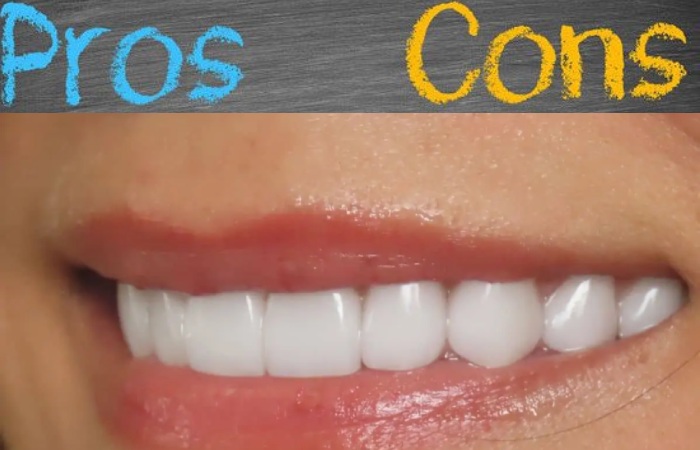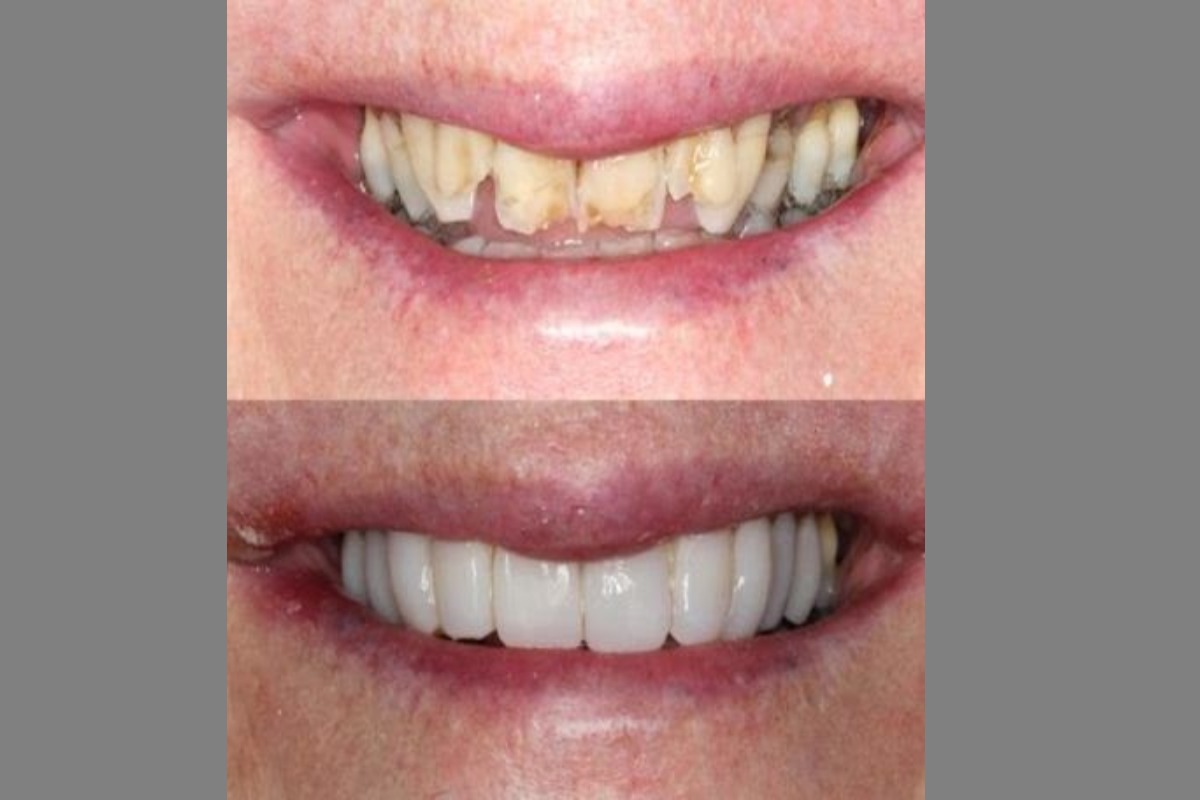Porcelain veneers and composite resin veneers are two different types of dental restorations. Both restore the appearance and function of teeth, but they have essential differences.
An important difference is that porcelain veneers are durable, tooth-colored porcelain. On the other hand, composite veneers are made of a resin composite material that is not as strong and can chip or break more easily.
Some of the other differences between the two are as follows.
- Porcelain veneers are also more expensive than composite resin veneers.
- Porcelain veneers are more resistant to staining than composite resin veneers, and they generally last longer.
- Composite resin veneers are easier to apply and can be done in one visit, while porcelain veneers require two visits.
- Composite resin veneers also tend to be less sensitive to temperature and pressure changes than porcelain veneers.
If you wish to get dental veneers, it is essential to discuss the pros and cons of both porcelain and composite resin veneers with your dentist to see which type is best for you.
Table of Contents
Pros of Composite Veneers
- Composite resin veneers are less expensive than porcelain veneers.
- Composite resin veneers can be done in one visit, whereas porcelain veneers require two visits.
- And also, composite resin veneers are easier to apply.

Cons of Composite Veneers
- Composite resin veneers are not as strong as porcelain veneers and can chip or break more easily.
- Composite resin veneers are more sensitive to temperature and pressure changes than porcelain veneers.
- And also, composite resin veneers may not last as long as porcelain veneers.
Pros of Porcelain Veneers
- Porcelain veneers are more resistant to staining than composite resin veneers and last longer.
- Porcelain veneers can be done in one visit, whereas porcelain veneers require two visits.
Cons of Porcelain Veneers
- Although they are more expensive than composite resin veneers, porcelain veneers may be worth the investment, as they last longer and look more natural.
- Porcelain veneers are more challenging to apply than composite resin veneers.
- Porcelain veneers are sensitive to temperature and pressure changes.
Cost of Composite Veneers vs Porcelain Veneers
Composite resin veneers are not very expensive in comparison to porcelain veneers. In addition, if you break a composite resin veneer, it can usually be repaired (which costs less than an initial application).
Who is a candidate for Composite Veneers and Porcelain Veneers?
Composite veneers are a good option for people with mild to moderate staining or those who want a more natural look. Porcelain veneers are a better choice for people with severe staining, teeth that are chipped or broken, or misshapen teeth.
Both porcelain and composite resin veneers improve the appearance of discolored, chipped, cracked, or uneven teeth. If you are planning to get dental veneers, be sure to discuss the pros and cons of both porcelain and composite resin veneers with your dentist to see which type is best for you. Speaking to your dentist will give you a better idea of which dental veneers are ideal for you. Then, depending on the condition of your front teeth, your dental care provider will recommend the correct procedure.

